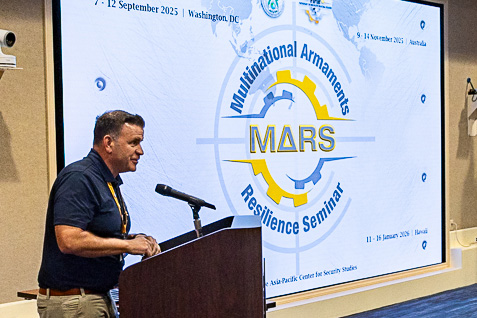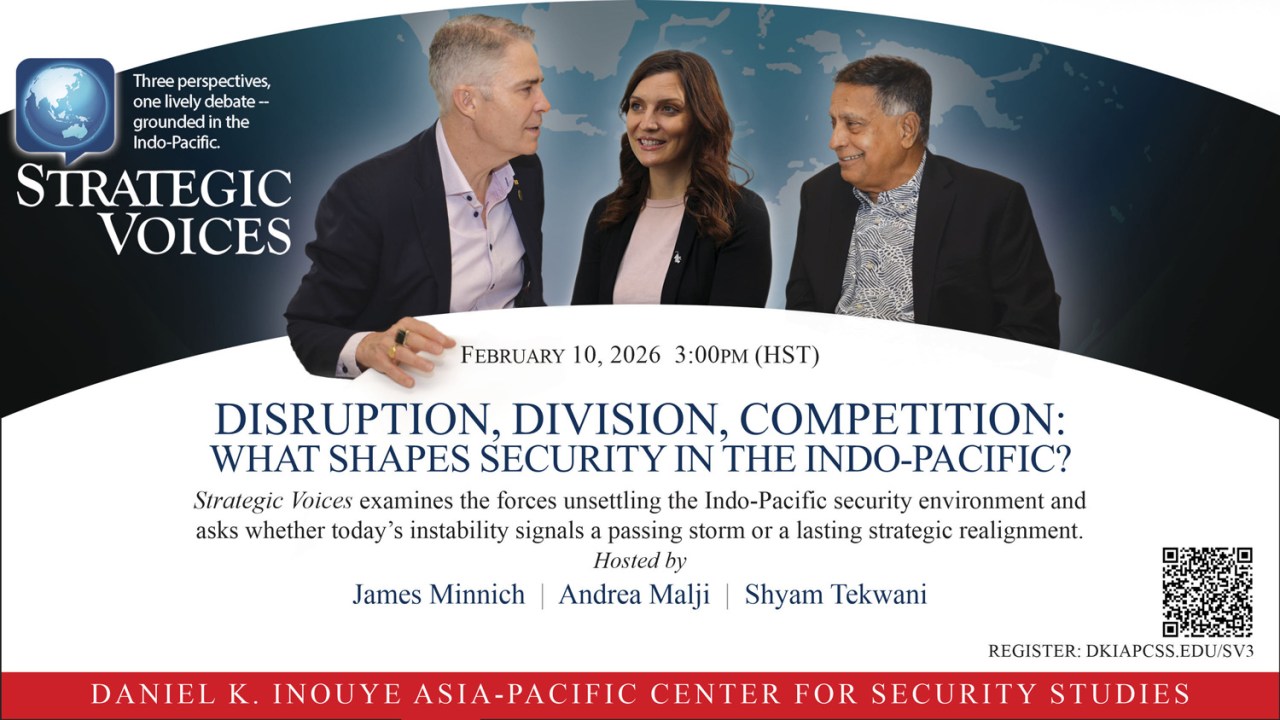China’s Perspective of Indo-Pacific Security | Yun Sun
Security Nexus | Webinar Ep4
December 4, 2023
The Security Nexus | Webinar became a pivotal platform on Monday, December 4th, as it unraveled the complexities shaping the Indo-Pacific region. Focused on exploring China’s evolving security posture, the webinar shed light on the profound geopolitical dynamics between China and the United States.
Central to the discussion was the intricate interplay between these two powerhouses and their divergent ideologies, security doctrines, and strategic objectives. Dr. James Minnich, the host, led a compelling discussion with Ms. Yun Sun, the Senior Fellow and Co-Director of the East Asia Program at the Stimson Center and Director of the China Program, who brought invaluable insights into the intricate web of China’s security paradigm.
The Indo-Pacific has emerged as a critical stage where the interests of global superpowers converge. Within this vast region, China and the United States vie for influence and dominance, shaping the geopolitical landscape and significantly impacting global stability.
The webinar transcended mere geopolitical posturing; it aimed to decipher the core drivers steering China’s security policies, identify potential flashpoints triggering tensions, and elucidate the far-reaching implications of this rivalry on regional and global stability.
Addressing the nuances of China’s security policy in the Indo-Pacific, Dr. Minnich and Ms. Yun Sun provided a comprehensive view of China’s strategies to protect its interests in the region. They delved into the factors molding China’s security landscape, emphasizing the securitization of its foreign policy under President Xi Jinping’s leadership. Moreover, they dissected the role of the Central National Security Commission in shaping China’s foreign policy decisions, highlighting its influence and significance.
One of the key focal points was understanding China’s security stance in countering perceived US efforts to create regional and domestic instability to undermine the legitimacy of the Chinese Communist Party. Ms. Yun Sun elaborated on how these efforts significantly influence China’s security posture, marking a significant evolution in China’s security objectives vis-à-vis the United States over the past 25 years.
Moreover, the discussion ventured into China’s strategies to challenge regional frameworks like the Quad and military cooperation plans such as AUKUS, shedding light on the potential risks of regional arms races influenced by China’s approach.
The dialogue concluded by addressing potential flashpoints such as crises in Taiwan, the South China Sea, and the Korean peninsula, offering insights into how China navigates these potential hotspots from its perspective.
The engagement of over 250 participants in submitting diverse and thought-provoking questions highlighted the importance and complexity of the issues discussed, further enriching the webinar.
The webinar encapsulated a nuanced understanding of China’s evolving security perspective in the Indo-Pacific, providing invaluable insights that contribute to fostering a secure and resilient future in the region.
 Rapid disaster management is a strategic asset for stability across the Indo-Pacific. CFE-DM Director Joe Martin joins Dialogue to examine how regional crisis response works in practice—and why preparedness, partnership, and strategy matter long before disaster strikes.
Rapid disaster management is a strategic asset for stability across the Indo-Pacific. CFE-DM Director Joe Martin joins Dialogue to examine how regional crisis response works in practice—and why preparedness, partnership, and strategy matter long before disaster strikes.
February 6, 2026
4:00 PM in Hawaii
The views expressed in this webinar are those of the participants and do not necessarily reflect the official position of the DKI APCSS or the United States government.









Leave A Comment